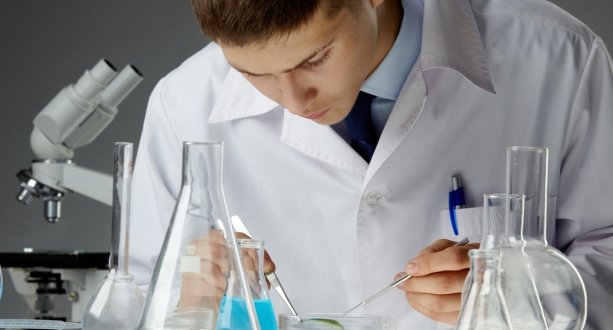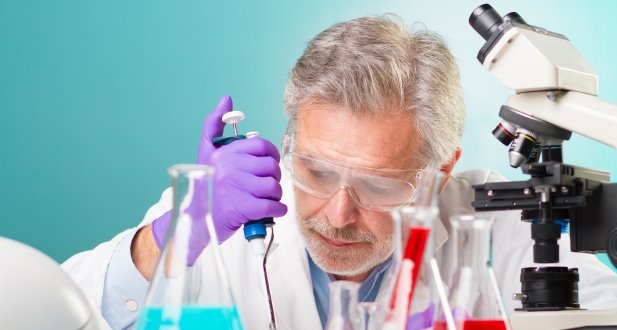What is Medical and Biological science?
Medical science and biological science are two related but distinct fields of study that involve the study of living organisms and the processes that govern them.
Biological science is the study of living organisms, including their structure, function, and interactions with the environment. It encompasses many different areas, including molecular biology, genetics, microbiology, ecology, and evolution. Biological scientists study organisms at all levels of complexity, from single-celled bacteria to entire ecosystems. They use a variety of tools and techniques, such as microscopy, genetic engineering, and computational analysis, to investigate the fundamental processes that underlie life.
Medical science, on the other hand, is a subset of biological science that focuses specifically on the study of human health and disease. It encompasses many different areas of study, including anatomy, physiology, pharmacology, epidemiology, and pathology. Medical scientists work to understand the mechanisms that underlie human health and disease, and to develop new treatments and therapies to improve patient outcomes. They also work to understand the social and environmental factors that contribute to health and disease, and to develop public health interventions that can prevent or mitigate disease outbreaks.
Despite their differences, medical and biological science are closely intertwined. Many of the discoveries and insights gained through biological research have direct applications in medicine. For example, the development of antibiotics was made possible by our understanding of bacterial biology, and the use of genetic engineering has revolutionized the treatment of certain genetic disorders. At the same time, medical research often provides insights into fundamental biological processes, such as the role of inflammation in aging and disease.
Medical and biological science are both essential fields of study that contribute to our understanding of the natural world and our ability to improve human health and wellbeing.
What is the study of medical Bioscience?
Medical bioscience is the interdisciplinary field that encompasses the study of the biological basis of human health and disease. It involves a broad range of scientific disciplines, including molecular biology, genetics, physiology, biochemistry, microbiology, pharmacology, and immunology, among others. The study of medical bioscience aims to understand the underlying mechanisms of disease and develop effective treatments to improve human health.
Medical bioscience is a rapidly evolving field that has made significant contributions to the understanding of human biology and the development of medical therapies. Advances in this field have led to the identification of disease-causing genes, the development of targeted therapies, and the creation of novel diagnostic tools. Medical bioscience research also plays a crucial role in the development of vaccines and the understanding of infectious diseases.
One of the key areas of research in medical bioscience is the study of genetic diseases. By understanding the genetic basis of diseases, researchers can develop personalized treatments and therapies that target specific genetic mutations. Medical bioscience research also plays a crucial role in the study of cancer, which is a complex and heterogeneous disease that requires a multidisciplinary approach.
In addition to research, medical bioscience also involves the development and testing of new drugs and therapies. This process involves rigorous testing and clinical trials to ensure that new treatments are safe and effective. Medical bioscience research also plays a critical role in the development of medical devices and diagnostic tools, which help clinicians diagnose and treat diseases more accurately and effectively.
Medical bioscience is a complex and interdisciplinary field that has significant implications for human health. By understanding the underlying mechanisms of disease, researchers can develop effective therapies and treatments that improve the lives of millions of people around the world. As our understanding of human biology continues to evolve, medical bioscience research will continue to play a crucial role in the development of new therapies and treatments for a wide range of diseases.
Top reasons for studying Medical and Biological science

Data science is an interdisciplinary field that combines statistical analysis, programming, and domain expertise to extract insights and knowledge from data. The goal of data science is to use data to inform decision-making and solve complex problems. It involves the collection, cleaning, processing, and analysis of data to identify patterns and trends, which can then be used to make predictions and inform business strategy.
Medical and biological sciences are two areas of study that have a significant impact on society. These fields are responsible for developing new treatments for diseases, understanding how the human body functions, and improving overall healthcare. There are several reasons why studying medical and biological sciences is important, and in this article, we will discuss some of the top reasons.
- Advancing Medicine and Healthcare
One of the most significant reasons to study medical and biological sciences is to advance medicine and healthcare. Medical and biological research has led to the discovery of new treatments and cures for diseases such as cancer, AIDS, and heart disease. Advances in medical technology have also allowed doctors to diagnose and treat patients more effectively.
Moreover, studying medical and biological sciences helps to develop new medical tools, equipment, and treatments, which can improve overall healthcare. For instance, studying genetics can help researchers develop personalized medicine that takes into account a patient’s unique genetic makeup.
- Understanding the Human Body
Another important reason to study medical and biological sciences is to understand how the human body works. Medical and biological sciences cover topics such as anatomy, physiology, and biochemistry, which can provide insight into how different organs and systems function in the human body.
Understanding the human body can help researchers develop new treatments for diseases and improve overall health. It can also help individuals take better care of their bodies by understanding how different lifestyle choices, such as diet and exercise, can impact their health.
- Solving Health Problems
Studying medical and biological sciences can also help to solve health problems. For example, studying epidemiology can help researchers identify the causes of diseases and develop strategies to prevent their spread. Studying microbiology can help researchers develop new antibiotics to combat antibiotic-resistant bacteria.
Studying medical and biological sciences can also help to solve public health problems, such as obesity and diabetes. By understanding the underlying causes of these conditions, researchers can develop strategies to prevent and treat them.
- Career Opportunities
Studying medical and biological sciences can also open up many career opportunities. Graduates of these programs can pursue careers in medicine, research, academia, and healthcare administration, among others.
Moreover, as healthcare becomes more advanced and personalized, there will be a growing demand for professionals with expertise in medical and biological sciences. This means that studying these fields can lead to stable, rewarding careers.
- Contributing to Society
Studying medical and biological sciences can also provide individuals with an opportunity to contribute to society. Advances in medical and biological research have the potential to save countless lives and improve the health and wellbeing of millions of people around the world.
By pursuing a career in medical and biological sciences, individuals can make a meaningful impact on society. Whether they work in research, healthcare, or academia, they will be contributing to the advancement of knowledge and the betterment of society.
In conclusion, there are several compelling reasons to study medical and biological sciences. These fields are responsible for advancing medicine and healthcare, understanding the human body, solving health problems, creating career opportunities, and contributing to society. As such, individuals who are interested in making a difference in the world and improving the health and wellbeing of others may find these fields to be a fulfilling and rewarding area of study.
Career options for Biomedicine graduates
Medical Doctor:
Many Biomedicine graduates go on to become medical doctors. With their knowledge of human anatomy and physiology, as well as disease and treatment, they are well-suited for this career. Medical doctors diagnose and treat illnesses, injuries, and other medical conditions, and work in hospitals, clinics, private practices, and other healthcare settings.
Biomedical Engineer:
Biomedical engineers design and develop medical equipment, such as prosthetics, artificial organs, and medical imaging systems. Biomedicine graduates with a background in engineering can pursue this career, which involves applying principles of engineering and biology to develop solutions that improve healthcare.
Pharmaceutical Researcher:
Biomedicine graduates can also work in the pharmaceutical industry, researching and developing new drugs and therapies for various medical conditions. They may work in drug development, clinical research, or regulatory affairs, among other areas.
Public Health Specialist:
Biomedicine graduates with an interest in public health can work as public health specialists, developing and implementing programs to improve the health of populations. They may work in government agencies, non-profit organizations, or other settings, and may focus on issues such as infectious disease control, environmental health, or health policy.
Biostatistician:
Biostatisticians analyze health-related data to identify patterns and trends, and to develop models that can be used to predict future health outcomes. Biomedicine graduates with a strong background in mathematics and statistics can pursue this career, which involves using data to inform public health decisions and medical research.
Medical Science Liaison:
Medical science liaisons act as a bridge between healthcare professionals and pharmaceutical companies, providing medical information and support to healthcare providers, and promoting new products and therapies. Biomedicine graduates with strong communication and interpersonal skills can pursue this career, which involves extensive travel and interaction with healthcare providers.
Genetic Counselor:
Genetic counselors work with individuals and families to assess the risk of genetic conditions and provide guidance on genetic testing, diagnosis, and treatment. Biomedicine graduates with an interest in genetics and strong communication skills can pursue this career, which involves working closely with patients and their families.
Healthcare Administrator:
Healthcare administrators manage and oversee healthcare facilities, such as hospitals, clinics, and nursing homes. They may be responsible for budgeting, staffing, and other administrative tasks, as well as ensuring that the facility meets quality and safety standards. Biomedicine graduates with strong leadership and management skills can pursue this career, which involves working closely with healthcare professionals and other administrators.
Medical Writer:
Medical writers produce a variety of written materials, including scientific papers, regulatory documents, and marketing materials for pharmaceutical companies. Biomedicine graduates with strong writing skills and a good understanding of medical terminology can pursue this career, which involves working in a variety of settings, including pharmaceutical companies, government agencies, and medical journals.
Medical Illustrator:
Medical illustrators use their artistic skills to create visual representations of medical concepts, such as anatomical structures, medical procedures, and disease processes. Biomedicine graduates with an artistic background and an interest in visual communication can pursue this career, which involves working in a variety of settings, including medical publishing companies, research institutions, and healthcare facilities.
Conclusion
Overall, medical and biological science have had a profound impact on human health and well-being, and the continued pursuit of knowledge in these fields will undoubtedly lead to further breakthroughs and advancements in the future.
In recent years, researchers have made significant strides in understanding the underlying mechanisms of complex diseases, such as cancer and Alzheimer’s, which has led to the development of new therapies and treatments. Additionally, advancements in biotechnology, including gene editing and regenerative medicine, hold promise for treating previously incurable diseases.
Frequently Asked Questions
The immune system is a complex network of cells, tissues, and organs that work together to defend the body against harmful invaders such as viruses, bacteria, and cancer cells. It identifies and destroys foreign substances using various mechanisms including antibodies, white blood cells, and cytokines.
DNA (deoxyribonucleic acid) is a molecule that contains genetic information for the development and function of all living organisms. DNA is composed of four nucleotide bases (adenine, thymine, guanine, and cytosine) arranged in a specific sequence. The sequence of bases in DNA determines the instructions for building proteins, which in turn determine an organism’s physical traits.
Cancer is a group of diseases characterized by uncontrolled cell growth and division that can invade and destroy healthy tissues in the body. It develops when mutations occur in genes that regulate cell growth and division, leading to abnormal cell behavior and the formation of tumors.
Neurons are specialized cells that transmit signals in the nervous system, while glial cells support and protect neurons. Glial cells include astrocytes, oligodendrocytes, and microglia, which perform functions such as providing nutrients and insulation to neurons, repairing damaged tissue, and removing waste.
Vaccines work by introducing a small, harmless piece of a pathogen (such as a virus or bacteria) into the body, which triggers an immune response. This response prepares the immune system to recognize and destroy the pathogen if it is encountered again in the future, thereby preventing illness.
Arteries carry oxygenated blood away from the heart to the rest of the body, while veins return deoxygenated blood back to the heart. Arteries have thicker walls and more elastic fibers to withstand the pressure of blood flow, while veins have valves to prevent blood from flowing backwards.
Type 1 diabetes is an autoimmune disease in which the immune system attacks and destroys the cells in the pancreas that produce insulin, a hormone that regulates blood sugar levels. Type 2 diabetes is a metabolic disorder in which the body becomes resistant to insulin or does not produce enough insulin, leading to high blood sugar levels.
The respiratory system consists of the lungs, airways, and respiratory muscles that work together to exchange gases between the body and the environment. Air enters the body through the nose or mouth, passes through the pharynx, larynx, trachea, and bronchi, and reaches the alveoli in the lungs where oxygen is transferred to the bloodstream and carbon dioxide is removed.
Stem cells are undifferentiated cells that have the potential to develop into many different types of specialized cells, while differentiated cells have already developed into a specific type of cell with a specialized function. Stem cells can be used for medical purposes such as tissue regeneration and disease treatment, while differentiated cells perform specific



